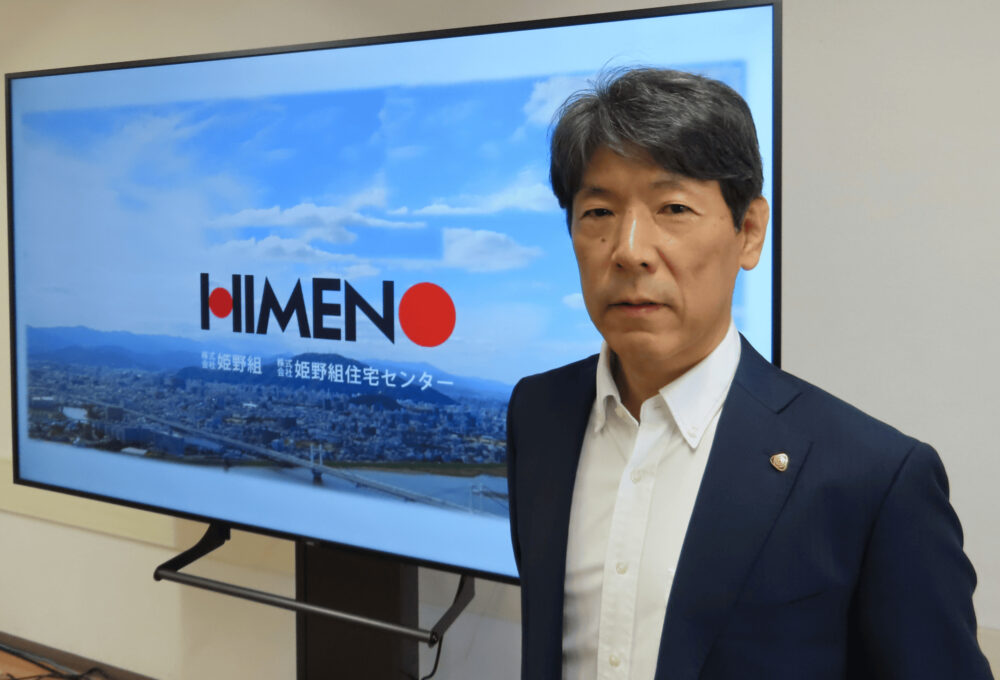Construction Contracts Signed 90% Faster with E-signatures from SignTime

Himeno-Gumi Co., Ltd.

Interviewee
Manager, DX Promotion Section, Business Promotion Headquarters, Mr. Iwasaki
Section Manager, Administration Department, Civil Engineering Division, Ms. Fujita
Chief Clerk, Disaster Prevention Center, Civil Engineering Division, Ms. Yanagi
(Picture: President Himeno)
Himeno-Gumi has long supported local infrastructure development through civil and building construction projects centered in Tokushima Prefecture. In recent years, the company has been actively reviewing its internal operations and pursuing digital transformation. As part of this initiative, they adopted the signature service "SignTime" to improve efficiency and speed in their contract processes. We spoke with several team members directly involved with SignTime to learn more about the background of its implementation and the impact it has made.
- Industry
- Construction
- Number of Employees
- Medium
- Pain Points
- Cost Consumption、Time Consumption、Wants to centrally manage all documents
・Contracts required physical delivery due to tight lead times before construction.
・Paper-based processes and physical stamping with a corporate seal were time-consuming and inefficient.
・Managing both paper and digital files created extra work.
・Contracts are now completed same-day, with no need for in-person delivery.
・Digital document exchange drastically reduced lead times.
・SignTime centralized contract management and enabled paperless operations.
What were the challenges before implementation?
We used to handle all contract-related documents—such as purchase orders and construction contracts—on paper, which took an average of one week to finalize. Since contracts are required before construction begins, project managers sometimes had to hand-deliver documents to meet tight deadlines, creating a heavy burden. Inefficiencies such as scanning, PDF conversion, and managing both paper and digital versions had become the norm.
What prompted you to introduce an electronic contract service?
As part of our company-wide DX efforts, we aimed to eliminate physical stamps and streamline workflows through contract digitization. We needed a platform that could manage the complex contract processes common in the construction industry, such as issuing purchase orders to subcontractors and internal approval flows. While exploring options that could handle everything from approvals to signatures and storage, we found SignTime.
Why did you choose SignTime among various options?
We compared SignTime with two other major electronic contract services. Essential features for us included API integration for future scalability, internal approval workflows, scanner-compatible storage, and support for multi-group operations—features critical for construction industry needs. With other providers, many of these features were only available as paid add-ons. SignTime, however, offered them as standard, making it the most cost-effective and suitable solution for our use case.
Which departments are using SignTime?
We’ve implemented SignTime across the following departments to manage a variety of construction-specific contracts:
- Civil Engineering Division: Purchase orders with subcontractors
- Building Construction Division: Purchase orders (to be expanded to construction contracts in the future)
- Corporate Management Department: External contracts such as with consultants and advisors
- Business Promotion Headquarters: Surveying and research contracts
What kind of impact have you seen since implementation?
Since implementing SignTime, the contract finalization period has been reduced from an average of one week to just same-day or within two days. All processes—from document sending to e-signing and centralized storage—are now completed on the SignTime platform. As a result, the workload associated with printing, mailing, and storing paper documents has been significantly reduced. Especially during peak construction seasons, not having to physically exchange contracts has greatly improved operational efficiency.
What has been the response from field staff?
While implementation progress varies by department, electronic contracts now account for about 80% of usage in the Civil Engineering Division. Field staff have commented that it’s extremely convenient to be able to electronically create, sign, and store contracts from start to finish. We plan to expand adoption in other departments and further promote digitization of paper contracts through scanner-compatible storage features.
Which features are you using most frequently?
- Sending new documents
- Internal approval workflows (used for nearly all documents)
- Company customization features (e.g., reflecting our logo in emails and on the interface)
What are your future plans?
We plan to make greater use of the scanner storage feature to digitize contracts that are still managed on paper. Additionally, we aim to increase the adoption rate of electronic contracts across the company and contribute to the broader goal of efficiency and stamp-less workflows in the construction industry. Through these initiatives, we hope to further accelerate our shift toward paperless operations and enable smarter contract management.
Read More Information
What Is a Electronic Contract and How Can They Revolutionize Your Business?
| Company Name | Himeno-Gumi Co., Ltd. |
|---|---|
| Industry | Construction |
| Company Profile | Founded in 1882, Himeno-Gumi Co., Ltd. is a general construction company based in Tokushima Prefecture, Japan. The company operates in both civil engineering and building construction, and is committed to community-based management. Himeno-Gumi promotes the use of ICT and digital transformation (DX), develops original construction methods, and actively supports women in the workplace. Himeno-Gumi also works on regional disaster prevention activities—consistent with the corporate goal of improving work environments and contributing to the local community. |
| Number of Employees | Medium |
| URL | https://himenogumi.co.jp/ |
